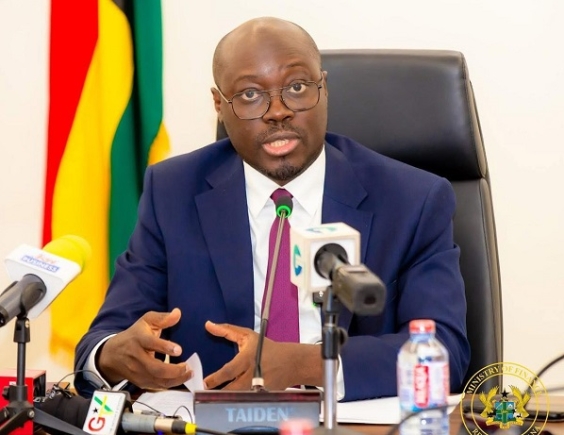
We are well-positioned for long-term economic prosperity
Ghana's economy is experiencing a remarkable turnaround, driven by the stunning recovery of the national currency, the cedi.
After years of volatility and inflationary pressures, the cedi has emerged as one of the world's top-performing currencies in 2025, gaining 44.5 per cent, 33 per cent, and 35.4 per cent against the US Dollar, Euro and British Pound, respectively, over the past few months.
This impressive resurgence is attributed to a combination of prudent domestic policies and favourable global trends.
The Bank of Ghana's tight monetary policy, maintaining interest rates between 27 per cent and 30 per cent, has successfully curbed inflation from 23.5 per cent in January 2024 to 13.7 per cent by June 2025.
Fiscal discipline, including a targeted 1.5 per cent GDP surplus in 2025, reduced ministerial budgets and amendments to the Public Financial Management Act, has restored confidence in government reforms.
The International Monetary Fund (IMF)-backed $3 billion extended credit facility has played a crucial role in Ghana's economic recovery, with $2.28 billion disbursed by April 2025 and $4.7 billion in debt cancellation secured.
Consequently, public debt-to-GDP has dropped significantly from 72.9 per cent in 2022 to 55 per cent in March 2025, signalling improved fiscal health.
This reduction in debt burden has also helped to restore investor confidence and improve the overall business environment in Ghana.
Surging commodity prices have also contributed to the cedi's recovery. Gold prices have risen from $1,801 per ounce in 2022 to $3,272 in June 2025, while cocoa prices have increased from $2,477 to $8,101 per ton, boosting export revenues and leading to a trade surplus of $4.14 billion, equivalent to 4.7 per cent of GDP, by April 2025.
The increased revenue from these commodity exports has helped to strengthen the country’s foreign exchange reserves and support the value of the cedi.
A weaker US dollar, driven by global uncertainties, has further supported the cedi's rise. The depreciation of the US dollar has made Ghana's exports more competitive, leading to increased demand and higher revenues. This, in turn, has helped to strengthen the cedi and improve Ghana's economic prospects.
To sustain the cedi's appreciation and ensure long-term economic stability, the Graphic Business recommends sustained fiscal discipline, including expenditure control, enhanced revenue mobilisation and prudent debt management.
Diversifying exports, adding value to commodities such as gold and cocoa, and attracting foreign direct investment through better business regulations are also essential.
It is the view of the Graphic Business that the government can achieve this by implementing policies that promote economic diversification, such as investing in infrastructure, improving the business environment, and providing support to small and medium-sized enterprises.
Additionally, the government can implement policies to attract foreign direct investment, such as offering tax incentives, streamlining regulatory processes, and providing guarantees for foreign investors.
With strategic reforms and favourable global conditions, Ghana's economy is poised for stability, offering hope for businesses and citizens alike.
The cedi's resurgence reflects the nation's resilience and commitment to economic recovery, and maintaining this momentum is crucial for achieving long-term economic growth and stability.